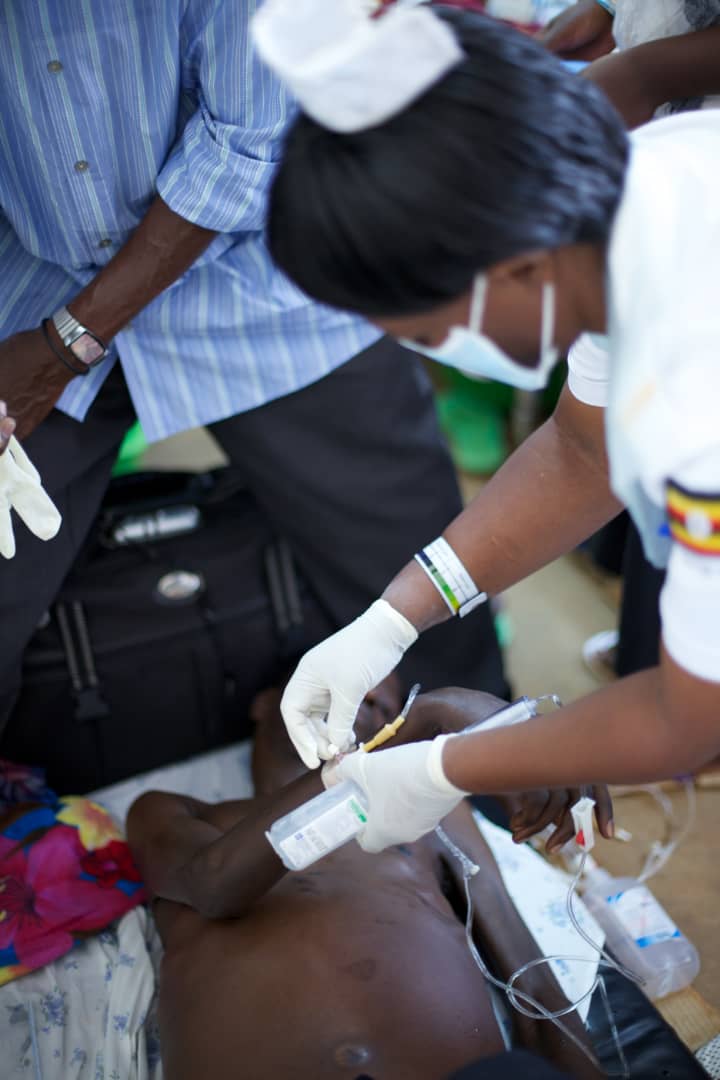
Cancer Access Partnership covers Ghana, 22 other sub-Sahara countries
Ghana is among 23 Sub-Saharan African countries to benefit from the Cancer Access Partnership, new agreements to expand access to 20 lifesaving cancer medicines announced by the American Cancer Society (ACS) and the Clinton Health Access Initiative (CHAI).
The agreements with pharmaceutical companies Pfizer, Novartis, and Mylan also covers selected countries in Asia, and is expected to result in a 59 percent savings on procured cancer medicines.
The other African countries included in the agreement are: Botswana, Cameroon, Eswatini, Ethiopia, Ivory Coast, Kenya, Lesotho, Liberia, Malawi, Mali, Mozambique and Namibia.
The rest are Nigeria, Rwanda, Senegal, Sierra Leone, South Africa, Sudan, Tanzania, Uganda, Zambia, and Zimbabwe.

“These countries were chosen because they are low and middle-income countries with high unmet need, have existing cancer treatment programmes, governments who have expressed a commitment to expanding high-quality cancer services, and in many cases have existing collaborations with ACS and CHAI. Together these twenty-three countries are home to 73% of new cancer cases every year in Sub-Saharan Africa”, says Racey Muchilwa, Head of Novartis sub-Saharan Africa.

Racey assures that ultimately, the partnership will improve cancer care in Africa, and address key challenges many cancer patients face, including access, quality and affordability of medications.
Affordability
Patients and health systems in Africa currently pay highly variable prices for medicines, due to a lack of transparency in the market, as well as high uncertainty and low volumes. This collaboration will improve affordability and enable more patients to access treatment.
Quality
African oncologists report significant challenges with counterfeit and low-quality medicines. By expanding access to quality-approved drugs, these agreements will ensure higher quality treatment for patients today and begin to shift the market towards higher quality products, encouraging additional market entry by the world’s major manufacturers, who already have products approved by a stringent regulatory authorities like the US Food and Drug Administration (USFDA) or the European Medicines Agency (EMA). This will translate to increased quality and competition in the long run.
Availability
Medicines often run out at hospitals and national medical stores due to insufficient planning, long delivery times, and limited budgets. Established world-class supply chains and global reach by large pharmaceutical companies with a broad range of products will improve availability of these essential medicines. Simultaneously, Allied Against Cancer will help improve procurement planning.

Asked how the 20 medicines were chosen, she said several of the 20 medicines are available in multiple formulations (29 formulations total). “We have included multiple formulations in order to better align with how these medicines are currently prescribed and purchased and to meet the needs of a wider range of patients. Out of the twenty medicines, fifteen are chemotherapies, four are hormone therapies, and one is an immunomodulatory. Out of the twenty-nine covered formulations, twenty-one (72%) are on the World Health Organizations’ Essential Medicines List, indicating that they are part of the minimum medicine needs for the health care system. These medicines help make up the key regimens for 27 cancers in Africa, including the three most common - breast, cervical, and prostate. Together, these three cancers comprise 38% of all cancers in the region. Standard treatment for these conditions include both chemotherapies and endocrine therapies.”
On the issue of whether there are guarantees about the quality of medicines, she assured that the agreements only cover products approved by a stringent regulatory authority designated by the World Health Organization, such as the US Food and Drug Administration (USFDA) or the European Medicines Agency (EMA).
“This represents the highest standard of quality. As a result, these agreements will enable countries to shift their purchases towards a higher percentage of quality products than they may be currently procuring. Products will also need to be appropriately registered with the national medicines regulatory agencies,” she explained.
The American Cancer Society (ACS) and the Clinton Health Access Initiative (CHAI), while announcing the partnership, quotes Professor Isaac Adewole, co-chair of the African Cancer Coalition and former Health Minister of Nigeria as saying that “With the rapidly growing burden of cancer in Africa, it is crucial that we improve and expand access to high-quality, affordable treatment. These agreements build on those announced in 2017 that have already delivered substantial savings and increased treatment availability in several countries, including Nigeria. By targeting the treatment needed for the cancers that cause the most deaths, these new agreements will help us to improve on quality of lives and close the mortality gap for Africans with cancer.”
Medications included in the agreements cover recommended regimens for 27 types of cancer and enable complete chemotherapy regimens for the three cancers that cause the most deaths in Africa—breast, cervical, and prostate. These cancers are highly treatable and account for 38 percent of cancers in the countries covered in the agreements. The new agreements include both chemotherapies and endocrine therapies aligned to evidence-based guidelines harmonized for sub-Saharan Africa, and expand access to additional formulations, including those essential for treating childhood cancer.

“With cancer cases increasing at such a rapid rate in sub-Saharan Africa, access to affordable cancer treatment that meets the quality standards set by a stringent regulatory authority is imperative,” said William G. Cance, MD FACS, Chief Medical and Scientific Officer, American Cancer Society, who also adds that “This collaboration has the potential to drastically impact access to care and save countless lives.”
Sub-Saharan Africa’s cancer burden is significant and growing. In 2018, there were an estimated 811,000 new cases of cancer and 534,000 deaths from cancer in the region. Cancer patients in sub-Saharan Africa are twice as likely to die as those in the United States, often due to late diagnosis and lack of access to treatment. Based on population aging alone, annual cancer deaths in sub-Saharan Africa are projected to almost double by 2030. The new agreements reach 23 countries in Africa, covering 74 percent of the annual cancer cases.
